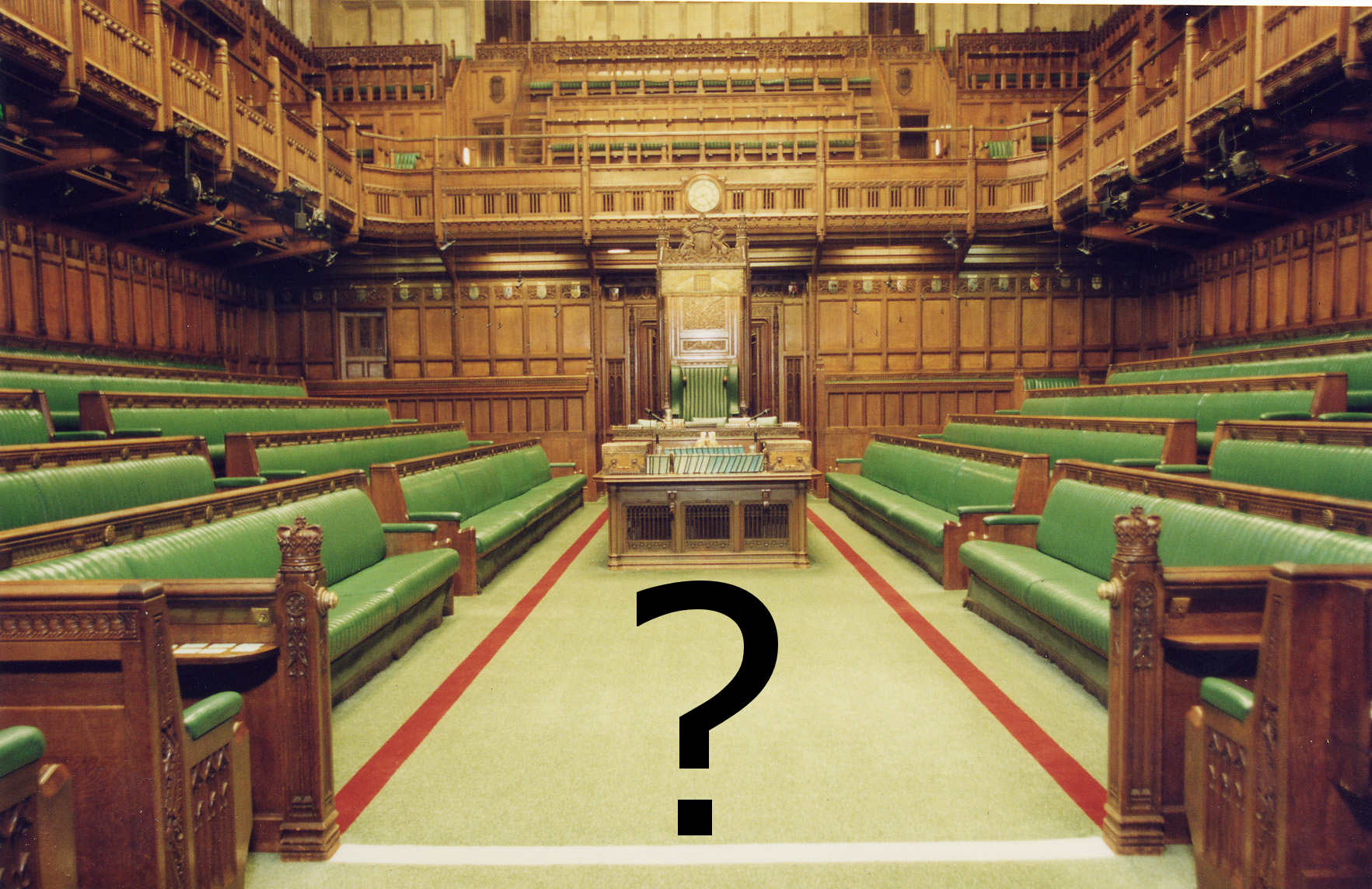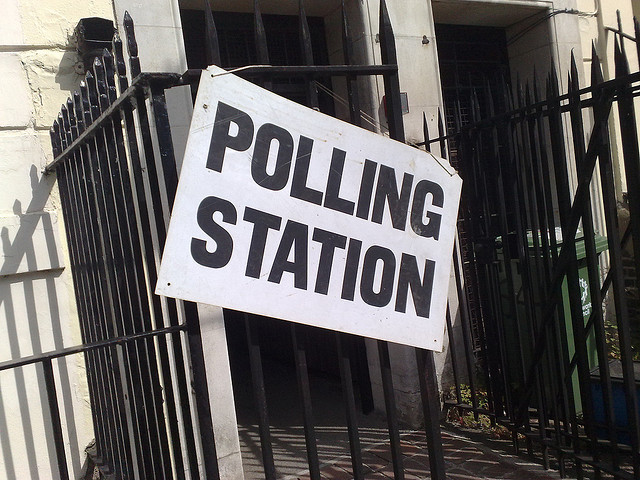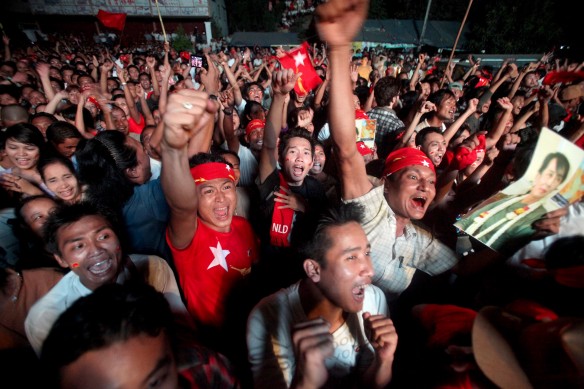
Predicting the next UK general election
As the results of the Local elections began to trickle in on Thursday night it soon became clear that the Labour Party had done well, gaining 824 councillors. The Conservatives, meanwhile, lost 403 and the Liberal Democrats lost 329. From this, the BBC reported an estimate of national vote share of 31% for the Conservatives, 38% for Labour and 16% for the Liberal Democrats, meaning that if these results were replicated at the next general election, Labour would win an 83 seat majority. But is there any reason to think that these results will be repeated at the next election? As I discussed in my last post, there are very good reasons to think that they won’t. But opinion in …

Do local elections predict general elections?
Today voters in 181 local authorities and councils across the UK will cast their votes to elect their local representatives. There are also elections for the London Assembly and three Mayoral elections, most prominently the election for the Mayor of London. Although officially concerned with local issues and local government, local elections in the UK are frequently taken to be large scale opinion polls on national political parties. When the results are announced they will inevitably be described by politicians and political commentators as (depending on the actual results, party affiliation and political inclination): a ‘triumph’, ‘disaster’, ‘bloody nose’, ‘strong message’, ‘resounding verdict’ and various other political clichés. Are politicians and commentators actually justified in making these statements? Do votes …

French Presidential Election: Where is the Meat?
When General de Gaulle empowered the President of the 5th Republic with far-reaching executive attributes, he sought to alleviate the head of state from what he called the “grenouillages” of politics. This has worked efficiently. Yet, his intention was certainly not to avoid debate over policy-proposals and between candidates. Unfortunately, this is what is happening in the 2012 French presidential election: it has moulded into a referendum on one individual, the President. For this very reason, it seems the socialists have a very good shot at taking the Elysée. Not because they have a better project – they don’t; not because their candidate is better – he isn’t; but because Sarkozy is unpopular and because there has been little debate between the main candidates – if at all. Nicolas Sarkozy may …
‘Federalism’ in Libya: Already in the dustbin of History
In today’s Libya, local is king. Yet, if Libya is to become a functioning state governed by an elected leadership capable of empowering its citizens and providing an equitable distribution of its resource wealth, then, the interim government of the National Transitional Council (NTC) must become king. In the run-up to the June elections many militias and civil society organizations are lambasting the interim government’s mission to centralize authority rather than its lacklustre results at achieving that task. On March 5th, notables in Benghazi — Libya’s second city and capital of the Eastern region of Cyrenaica — proposed to compensate for the ineffectiveness of the central NTC authorities by asking them to relinquish certain powers to sub-state bodies such as …

A Burmese Spring?
For the first time since the massacre of protesting monks in 2007, Myanmar is suddenly in the news. The National League for Democracy (NLD) has recently won 43 of 45 seats contested in a recent by-election and their leader and pro-democracy icon Daw Aung San Suu Kyi, beat her rival, former military doctor U Soe Min of the Junta-backed Union Solidarity and Development Party (USDP), in Kawhmu township just outside Yangon. These are the first significant multiparty elections in Myanmar in over twenty years and the results haven’t been simply annulled as they were last time. The NLD even won all four seats in the newly built capital, Naypiyadaw, where powerful men (they are all men) from the military establishment form over …

Choosing an electoral system for the House of Lords
Although their official report isn’t due to be published until the 23rd of April, on Wednesday the Guardian reported that the Joint Committee on Lords Reform has decided to back an ‘open preferential voting system’ rather than the government’s preferred Single Transferable Vote (STV) for electing members to a reformed House of Lords. Open preferential voting is a hybrid electoral system which allows voters to either express a rank ordering of individual candidates in the same manner as STV, or to select a list of candidates chosen by a political party, much like a closed list proportional representation system. In Australia, where the method is used to elect the Senate, this is known as voting ‘below’ and ‘above’ the line …

Russia: Gubernatorial Elections to be Re-Introduced, Party Registration Requirements Lowered
Following the safe re-election of Vladimir Putin to the Russian presidency on March 4th, the Russian government looks set to complete yet another round of institutional tinkering. Gubernatorial elections, abolished in 2004 following the Beslan Crisis, are set to be re-introduced. Governors will be elected for five year terms, serving a maximum of two terms. A second reading of the Bill will take place in the near future, and the final shape of the legislation is still uncertain. There is disagreement between the political parties in the Duma about how the ‘presidential filter’ (consultations between political parties and the President over who can be a candidate) will work. Meanwhile, the Federation Council has passed legislation aimed at making it easier …
When is news not news? Donations to political parties and the cash-for-access scandal
Over the weekend the cash-for-access ‘scandal’ over Conservative party donors possibly having dinner with David Cameron in exchange for large donations broke, after a sting by Sunday Times journalists. Predictably the news was followed by ‘outrage’ from the press and the Labour Party over the affront to democracy such donations represented, followed by a statement from David Cameron claiming it had nothing to do with him and that Peter Cruddas was acting independently. Despite the vast amount of news coverage generated by this latest scandal, almost none of it is actually news. Should we be surprised that Party donors get to have dinner with Party leaders? If we are, it is only because of our own ignorance. It says quite explicitly …









